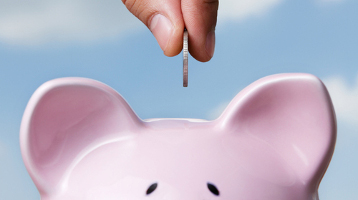 Being able to develop a budget that works in the long run is very tricky business. In fact, only about 40% among all the families in America are currently on a working budget. Developing one that works for you and being able to stick to it takes a lot of time, effort and commitment but it will surely help you build your wealth, minimize debts, and achieve financial plans.
Being able to develop a budget that works in the long run is very tricky business. In fact, only about 40% among all the families in America are currently on a working budget. Developing one that works for you and being able to stick to it takes a lot of time, effort and commitment but it will surely help you build your wealth, minimize debts, and achieve financial plans.
It takes weeks, even months, of strictly sticking to a budget before you and your family can adjust and ease into the habits of watching your spending habits. Deciding to have a budget is the first step to drafting a budget that works for you. But sitting down and just listing down a list of things that you have to pay is just a tiny portion of what makes an effective personal budget. If you are a first time budgeter or have tried several times but failed at every attempt, here are a few tips to help you get started on creating a budget that you can commit to stick to.
Identify what you have to work with
When starting to make a personal budget you must first identify how much you currently have. This will include money in savings and checking accounts, any investment that you may have, and interest rates for each.
After putting this all down, you should write down how much you make in a month. If you have a monthly fixed income, then this should be easy. But if you are paid in an hourly basis you should get the average of what you earn per month basing it from what you received in the last 6-12 months to get an estimate of how much you make.
Identify what you owe
The next step to creating your personal budget is listing down your monthly recurring debts. So long as you do not incur any additional debt in the future then this should be very simple for you to accomplish. This would normally include credit card payments, car loans, student loans, mortgages, and any other expenses that you pay for on a monthly basis.
Arriving at your net worth
A fairly accurate computation of your earnings, savings, and debt will give you a good idea of your net worth. Subtracting the total amount of the things that you owe from the total of what you have will help you determine your net worth and this will give you an estimate of your monthly disposable financial resources.
Identifying your monthly recurring expenses
Stack receipts of your expenses for an entire month so that you will be sure not to leave anything out when making a list of things that you should include in your budget. For one month, keep receipts for utility bills, groceries, and any other recurring expense that you have. Categorize these expenses and determine the average amount that you spend for each category for one month.
Using tools for budgeting
To keep track of your spending and budget per month, you should try to use online tools for budgeting. You can simply use an Excel sheet or use online budgeting tools, whichever you find best suits your needs.
Arriving at the bottom line and making adjustments
Once you have all of these information available, it will be easy for you to identify the bottom line. Do you have enough money to cover for the expenses or don’t you have enough? Knowing this can help you make adjustments accordingly. If you are overspending, you can make cuts on your monthly expenses. If you have a positive bottom line, you might want to start thinking of putting this away for savings if you haven’t already started.
Stick to it and be disciplined
It takes a few hours a week to keep track of all the things that you need for your budget but it will all be worth it in the long run. Having the validation that you are making the right financial choices will push you even more to commit to your budget and in a couple of years you should see the benefits of putting time and effort into making your budget work for you.